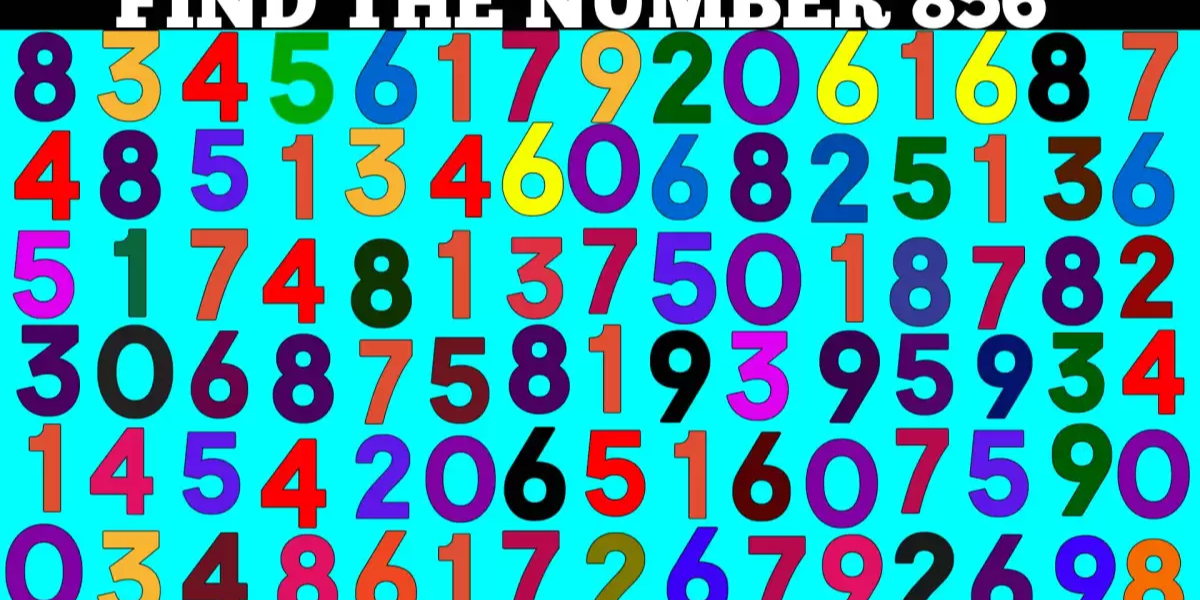In a world bustling with distractions, the ability to observe and discern details swiftly is a skill of immense value.
The saying, “the devil is in the details,” couldn’t be more pertinent in various facets of life, from problem-solving to decision-making.
One such intriguing demonstration of the power of observation is the task of spotting 5887 in 5387 within a mere 15 seconds.
It’s a seemingly simple challenge with layers of complexity hidden beneath the surface.
This article delves into the psychology, neuroscience, and techniques behind this feat, exploring how honing observational skills can enrich our lives.
Understanding the Challenge:
At first glance, the task appears straightforward: find the number 5887 within the number 5387.
However, a closer examination reveals the intricacies involved.
The similarity in appearance between the two numbers can deceive the untrained eye.
The challenge lies in detecting the minute differences that distinguish one from the other.
The Psychology of Observation:
Observation is not merely a passive act of seeing; it involves active engagement of the mind.
Psychologists have long studied the cognitive processes underlying observation, highlighting the role of attention, perception, and memory.
When presented with the task of spotting 5887 in 5387, attention acts as a spotlight, directing focus to relevant details while filtering out distractions.
Perception then comes into play, deciphering the visual information and extracting meaningful patterns.
Finally, memory aids in comparing the observed details with stored knowledge, facilitating recognition.
Neuroscience of Perception:
Neuroscientists have made significant strides in unraveling the neural mechanisms governing perception.
The brain processes visual stimuli through a network of interconnected regions, each specializing in different aspects of perception.
For instance, the fusiform face area (FFA) is implicated in facial recognition, while the parietal cortex plays a crucial role in spatial awareness.
When confronted with the task of spotting 5887 in 5387, these brain regions collaborate to analyze the visual input, enabling rapid identification of relevant features.
Techniques for Enhancing Observation Skills:
While some individuals possess a natural knack for observation, others can refine their skills through deliberate practice and specific techniques.
One such technique is mindfulness, which involves cultivating present-moment awareness and sharpening attention.
By practicing mindfulness exercises regularly, individuals can enhance their ability to notice subtle details in their surroundings.
Another effective strategy is mnemonic devices, which aid in memory retention and recall.
Associating visual cues with numerical patterns can facilitate quicker identification of relevant information.
For example, visualizing the number 5887 as distinct from 5387 by mentally overlaying it with a unique image or color can aid in differentiation.
Moreover, engaging in activities that require keen observation, such as puzzles, games, or even nature walks, can serve as excellent training grounds for honing observational skills.
These activities challenge the mind to actively scrutinize the environment, fostering a habit of attentive awareness.
Real-World Applications:
The ability to spot 5887 in 5387 within 15 seconds may seem like a trivial exercise, but its implications extend far beyond the realm of numerical puzzles.
In professions such as law enforcement, healthcare, and engineering, keen observation can be a matter of life and death.
Detectives rely on keen observation to gather clues and solve crimes, while doctors use it to diagnose illnesses based on subtle symptoms.
Similarly, engineers employ observation to identify potential flaws in designs and prevent catastrophic failures.
Furthermore, in everyday life, honed observational skills can enhance personal relationships, as individuals become attuned to nonverbal cues and subtle changes in behavior.
Whether it’s noticing a friend’s hidden distress or appreciating the beauty of nature’s intricate patterns, the power of observation enriches our interactions and experiences.
Conclusion:
The task of spotting 5887 in 5387 within 15 seconds serves as a compelling illustration of the remarkable capabilities of the human mind.
It underscores the importance of cultivating keen observation skills, not only for academic or professional success but also for personal enrichment.
By understanding the psychology, neuroscience, and techniques behind observation, individuals can harness this power to navigate life’s complexities with clarity and insight.
So, the next time you encounter a seemingly trivial challenge, remember: a keen eye can indeed spot 5887 in 5387 in 15 seconds, and much more.
